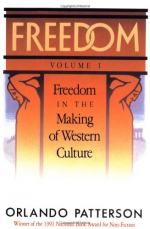
|
| Name: _________________________ | Period: ___________________ |
This quiz consists of 5 multiple choice and 5 short answer questions through Chapter 20.
Multiple Choice Questions
1. In what revolution does the slaveholder become economically dependent on the slave for his own financial well-being?
(a) The economic revolution.
(b) The freedom revolution.
(c) The political revolution.
(d) The social revolution.
2. How does this chapter examine the role of women in the development of the concept of freedom?
(a) Using German symphonies.
(b) Using Roman plays.
(c) Using Greek tragedy.
(d) Using French operas.
3. What school of thought is one of moral introspection, postulating that the soul is trapped inside the body during life and is freed when the body dies.
(a) Stoicism.
(b) The Socratic method.
(c) Cynicism.
(d) Epicureanism
4. Which women had more activities outside the home?
(a) The higher up the women are on the social ladder.
(b) The lower down the women are on the social ladder.
(c) Any woman on the social ladder.
(d) Those women in the middle of the social ladder.
5. What are the three elements of freedom called?
(a) The Chordal triad.
(b) The Choral trio.
(c) The Cord thrice.
(d) The Corpus triad.
Short Answer Questions
1. At the end of the war in 230 B.C., Athens establishes what, that brings their imperialism to an end?
2. What happens to these former slaves that become successful and prosperous?
3. This means that there has to be an increase in what?
4. With whom do the patricians conflict?
5. To what are the Reactionary Stoicism beliefs adapted?
|
This section contains 290 words (approx. 1 page at 300 words per page) |

|




